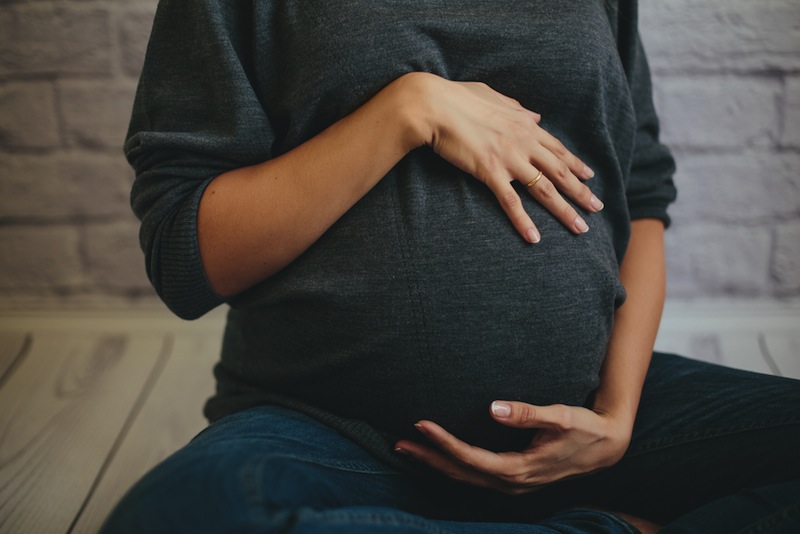After Zika Infection, People Should Wait Months to Conceive Children, CDC Says

Get the world’s most fascinating discoveries delivered straight to your inbox.
You are now subscribed
Your newsletter sign-up was successful
Want to add more newsletters?

Delivered Daily
Daily Newsletter
Sign up for the latest discoveries, groundbreaking research and fascinating breakthroughs that impact you and the wider world direct to your inbox.

Once a week
Life's Little Mysteries
Feed your curiosity with an exclusive mystery every week, solved with science and delivered direct to your inbox before it's seen anywhere else.

Once a week
How It Works
Sign up to our free science & technology newsletter for your weekly fix of fascinating articles, quick quizzes, amazing images, and more

Delivered daily
Space.com Newsletter
Breaking space news, the latest updates on rocket launches, skywatching events and more!

Once a month
Watch This Space
Sign up to our monthly entertainment newsletter to keep up with all our coverage of the latest sci-fi and space movies, tv shows, games and books.

Once a week
Night Sky This Week
Discover this week's must-see night sky events, moon phases, and stunning astrophotos. Sign up for our skywatching newsletter and explore the universe with us!
Join the club
Get full access to premium articles, exclusive features and a growing list of member rewards.
People who have been infected with Zika virus should wait at least several months before they attempt to conceive a child, according to new recommendations from the Centers for Disease Control and Prevention.
Women who are diagnosed with Zika or who experience symptoms of the disease after possible exposure to Zika should wait at least eight weeks after their symptoms started before trying to become pregnant, the CDC said.
For men, the recommended wait is much longer: Those who have been infected with Zika or who have symptoms of it should wait at least six months before attempting to conceive a child, the agency said.
Women and men who don't develop symptoms of Zika, but could have been exposed to the virus by mosquito bites or through sexual activity, should wait at least eight weeks before attempting to conceive a child, the CDC said.
To come up with the new recommendations, the CDC considered the longest known period that Zika virus can persist in the blood and semen, and then tripled this period, said Dr. Denise Jamieson, of the CDC's Zika Virus Response Team. Although Zika virus usually causes mild or no symptoms, health officials are concerned about a link between Zika during pregnancy and a birth defect called microcephaly, or an abnormally small head.
"Mounting evidence supports a link between Zika and microcephaly…and possibly other problems such as miscarriage and stillbirth," Jamieson said in a news conference today (March 25). Exactly how often Zika virus is linked with pregnancy complications is still being studied, Jamieson said. [Zika Virus FAQs: Top Questions Answered]
The virus is currently spreading in 39 countries in Central and South America, and the Caribbean. It is not spreading in the United States, but is being transmitted in U.S. territories, including Puerto Rico, which has reported more than 260 cases of Zika virus, the CDC said.
Get the world’s most fascinating discoveries delivered straight to your inbox.
The agency stopped short of saying that women who live in areas where Zika is spreading should avoid getting pregnant. But it said that people who live in these areas should be counseled about how to prevent Zika infection and risks of infection, and that "some women and their partners residing in areas with active Zika virus transmission may decide to delay pregnancy."
Decisions regarding when to have children are complex, and pregnancy always comes with risks, Jamieson said. "Unfortunately, Zika adds one more potential risk." The CDC wants to "provide the best evidence about risks so that women and their partners can make informed decisions" about pregnancy planning, Jamieson said.
Previously, the CDC recommended that men who have a pregnant partner and have traveled to areas where Zika is spreading should use condoms or abstain from sex for their partner's entire pregnancy. This recommendation remains the same, but the agency also issued new recommendations to prevent the sexual transmission of the virus among couples who aren't pregnant.
The agency recommends that couples in which the man has been infected with Zika or has symptoms of the virus should use condoms or abstain from sex for at least six months after the start of symptoms. If a man has traveled to an area where the Zika virus is spreading, but did not develop symptoms, he should still use condoms or abstain from sex for at least eight weeks after his return. Only 1 in 5 people infected with Zika show symptoms of the infection, the agency has previously said.
Couples who live in areas where Zika virus is spreading, but have not developed symptoms, should consider using condoms or abstaining from sex while there is an active Zika transmission, the agency said.
The U.S. government is working to increase women's access to the most effective forms of birth control in Puerto Rico, which has a high rate of unintended pregnancies, the CDC said.
Follow Rachael Rettner @RachaelRettner. Follow Live Science @livescience, Facebook & Google+. Original article on Live Science.

Rachael is a Live Science contributor, and was a former channel editor and senior writer for Live Science between 2010 and 2022. She has a master's degree in journalism from New York University's Science, Health and Environmental Reporting Program. She also holds a B.S. in molecular biology and an M.S. in biology from the University of California, San Diego. Her work has appeared in Scienceline, The Washington Post and Scientific American.
 Live Science Plus
Live Science Plus










